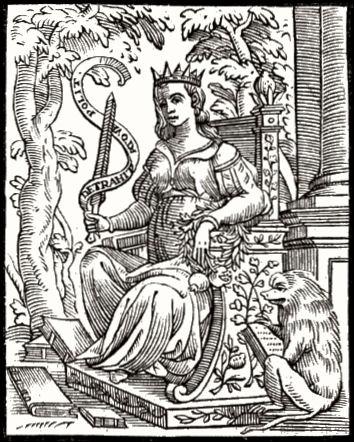MPhil in Political Thought and Intellectual History

Overview
The MPhil in Political Thought and Intellectual History is aimed at students who have an interest in both the theory and history of political thought, including those wider intellectual idioms which provide the context for its development. It also welcomes students whose previous study had a more specialised historical or theoretical (or philosophical) bent, provided that while doing this course they are willing to engage themselves with both approaches to research.
This MPhil attracts students from all over the world, and its training provides an ideal foundation from which to proceed to doctoral research, not only in the United Kingdom, but in North American, European, Asian and Southern Hemisphere university systems.
To get a better sense of the kind of work done in the field of history of political thought, take a look at Interventions, a podcast series led by graduate students in the Faculty that introduces introduces intellectual historians from Cambridge and beyond to everyone with an interest in history and politics.
At a glance
All students will submit a thesis of 15,000–20,000 words, worth 50 per cent toward the final degree.
Students also produce two 5,000-6,000-word essays, the first in Michaelmas term and the second in Lent term; each essay is worth 25% of the final degree grade.
All students admitted to the MPhil in Political Thought and Intellectual History will be assigned a supervisor to work with them throughout the course, but crucially on the dissertation. Students will meet regularly with their supervisor throughout the course.
Students can expect to receive:
- Regular oral feedback from their supervisor, as well as termly online feedback reports;
- Written feedback on essays and assessments and an opportunity to present their work;
- Oral feedback from peers during graduate workshops and seminars;
- Written and oral feedback on dissertation proposal essay to be discussed with their supervisor; and
- Formal written feedback from two examiners after examination of a dissertation.
If you have any questions, drop us a line on polthought@hist.cam.ac.uk.
Aims of the Course
Priority is given to the pursuit of the individual student’s research: all examined work derives from this research. Classes are provided in Methodology, in the reading of selected texts, and in selected concepts: these are intended to be ‘exemplary’, offering opportunities to explore different methods used in the field, different approaches to reading texts, and a variety of political concepts. Work done in classes is not examined.
The MPhil in Political Thought and Intellectual History offers students a rounded and flexible Masters programme that provides them with an introduction to all three of the fields contained within its scope - History of Political Thought, Political Theory, Intellectual History - while allowing them to specialise in their own area of particular interest. It offers a thorough training in the key techniques of higher-level academic study and research.
The MPhil is inter-Faculty: History, Politics, and Classics are the participating departments. The teaching staff, and examiners, have diverse disciplinary backgrounds, as do students on the course.
After completion of the MPhil in Political Thought and Intellectual History, students should have:
- Acquired an enhanced understanding of the history of political thought as well as an appreciation of the broader theoretical approaches and intellectual idioms that inform its study;
- Acquired the analytical capacity to pursue independent study of primary texts in the history of political thought and to evaluate the findings of secondary commentators; and
- Acquired the ability to situate their own research findings within the context of previous and current interpretative scholarly debates in the field of political thought and intellectual history.

The Course
Course Outline and Schedule
The course comprises two kinds of work: group study and individually-tailored supervised research training culminating in examined essays and a dissertation.
Both continue simultaneously throughout the year, so that students are expected to attend the course classes, research seminar, and lectures at the same time as researching their essays. While there are no fixed course classes in the Easter Term when students will be concentrating on their dissertation, they will be required to present their work at a Dissertation Workshop and encouraged to continue attending lectures and seminars.
Postgraduate students in Cambridge are expected to work continuously throughout the year with the exception of a few days’ break at a time, so that the ‘vacation periods’ are in fact periods in which required work must be completed, as shown below.
Further course details can be found on the postgraduate admissions course pages.
Individual research/written work to be examined
- Essay 1
Group study: Taught classes
- Mandatory text reading class
- Mandatory methods class
Other group study
- Weekly research seminar
- Lectures
Applying to the course
To apply to the MPhil in Political Thought and Intellectual History, you will need to consult the relevant pages on the Postgraduate Admissions website (click below).
Since applications are considered on a rolling basis, you are strongly advised to apply as early in the cycle as possible.
On the Postgraduate Admissions website, you will find an overview of the course structure and requirements, a funding calculator and a link to the online Applicant Portal. Your application will need to include two academic references, a transcript, a CV/ resume, evidence of competence in English, a personal development questionnaire, two samples of work and a research proposal.
Research proposals are 600–1,000 words in length and should include the following: a simple and descriptive title for the proposed research; a rationale for the research; a brief historiographic context; and an indication of the sources likely to be used. The document should be entitled ‘Statement of Intended Research’. Applicants are encouraged to nominate a preferred supervisor, and are invited to contact members of the Faculty in advance of submitting their application to discuss their project (see our Academic Directory: https://www.hist.cam.ac.uk/directory/academic-staff).
Below are some anonymised examples of research proposals, submitted by successful applicants to the MPhil in Political Thought and Intellectual History. You may use these to inform the structure of your submission. Please note that they are purely for guidance and not a strict representation of what is required.
Political Thought and Intellectual History - Research Proposal 1
Political Thought and Intellectual History - Research Proposal 2
Assessment & Dissertation
Individually supervised research is the main educational thrust of the MPhil in Political Thought and Intellectual History, to which students will devote most of their time. It aims to introduce students to advanced study of a more specialised and intensive kind, preferably in areas relevant to the student's future PhD topic.
Each student is assigned to an overall Supervisor for the entire MPhil year. Graduate students in Cambridge are expected to have the capacity, and enthusiasm, for organising their own research and to work largely on their own initiative. The Supervisor will be an expert in the student's area of research interest and will guide the student’s entire programme of study. For more information see the Faculty's pages on Supervision.
The Supervisor’s role is to help students to clarify their own ideas and formulate their research strategy, not to impose his or her own interests on the student or act as an undergraduate teacher. The general norm for supervisory assistance is one supervision every two weeks during the eight weeks of each full term.
Students are expected to produce written work in advance for their Supervisor’s comment at most meetings and not to meet only for general discussion. Supervisors on the other hand are obliged to offer constructive comments on these written submissions and guide students towards the timely completion of their examination work.
MPhil Essays
Students will produce two 5,000-6,000 word essays, one in Michaelmas Term and another in Lent Term.
Each will count toward 25% of the final degree, for a total of 50%. The two essays together constitute Part I of the MPhil.
Students will also prepare a 2,000-word dissertation proposal essay due in the Lent Term. This essay will be unassessed but students will meet with their Supervisor to discuss the essay and get feedback in preparation for the dissertation.
For these essays Students may choose to work with a different essay supervisor from their overall supervisor for one or both of these essays (subject to availability of the desired supervisor). Such sub-contracting can be a useful way for students to benefit from the wide range of expertise available in Cambridge, but should be arranged in consultation with the overall Supervisor in order to plan a coherent course of research for the year.
Thesis
The thesis is Part II of the MPhil in Political Thought and History.
All students will submit a thesis of 15,000-20,000 words, worth 50% toward the final degree.
At the discretion of the Examiners the examination may include an oral examination on the thesis and on the general field of knowledge within which it falls.
Practical assessment
All students will present their work at least once during the academic year and will receive feedback from academics and peers on their work-in-progress. This is not an assessed element of the course but is a valuable feedback tool for the dissertation.
In the last third of the course students currently complete a 15,000 to 20,000 word dissertation, based on independent research, to be submitted before the end of Easter Full Term (early June). The dissertation may be a direct continuation of the topics already chosen for the Research Essays or it may open up relatively new areas of research.
It is essential that students give thought to their dissertation plans from the moment they embark on the course. They will be required to provide evidence of preliminary research on the dissertation at the beginning of the Lent Term, and shortly afterwards to submit the proposed title of their dissertation, together with a descriptive statement of 500-1000 words and a page of bibliography. The dissertation ought to be designed in such a way as to help students to find their own distinctive research topic for subsequent PhD study and is therefore seen as a direct preparatory contribution to the candidate's envisaged doctoral research.
All Cambridge research degrees (MPhil, MSc, MLitt, PhD) require some contribution to learning as an examination requirement. While the PhD requires a 'significant' contribution to learning, the criteria for the two-year MLitt degree is a 'useful' contribution, and the MPhil requires ‘a contribution’. Although provisional decisions concerning admission to a PhD programme (in Cambridge or elsewhere) are often taken before dissertations are completed, in the end it is the quality of the dissertation which is regarded as the chief criterion of an MPhil student’s suitability for being granted ‘leave to continue’ to the PhD.
